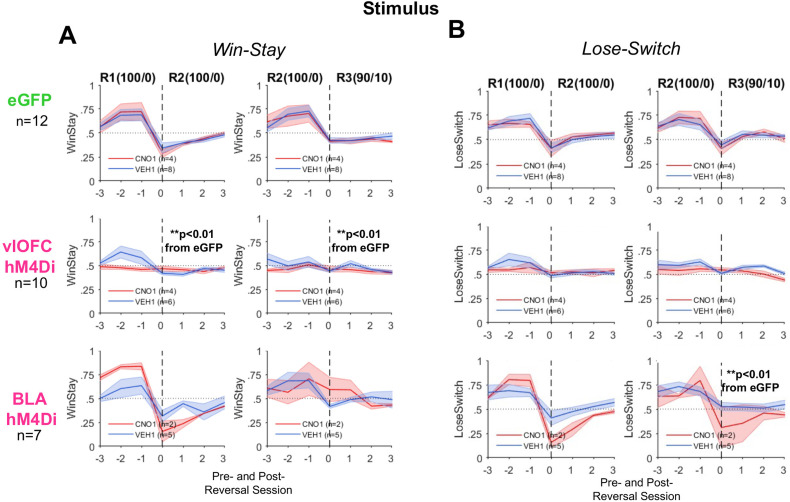Figure 9.
vlOFC, but not BLA, inhibition impairs adjustments to deterministic stimulus-based reversals as measured by changes in win–stay strategies. Plots of win–stay and lose–switch around reversals were restricted to include only animals that reached greater than 50% running window average for the last 100 trials in initial discrimination. A, Inhibition of vlOFC abolishes changes in win–stay over the last three (pre-) and first three (post-) reversal sessions, indicating impaired R1–R2 and R2–R3 transitions. In contrast, BLA inhibition had no impact on performance during these transitions. B, Inhibition of BLA attenuates changes in lose–switch over the last three (pre-) and first three (post-) reversal sessions in R2–R3 or the transition from deterministic to probabilistic schedule. There was also no effect of CNO in eGFP group learning. **p < 0.01 different than eGFP following ANOVA of pre-/post-difference.

